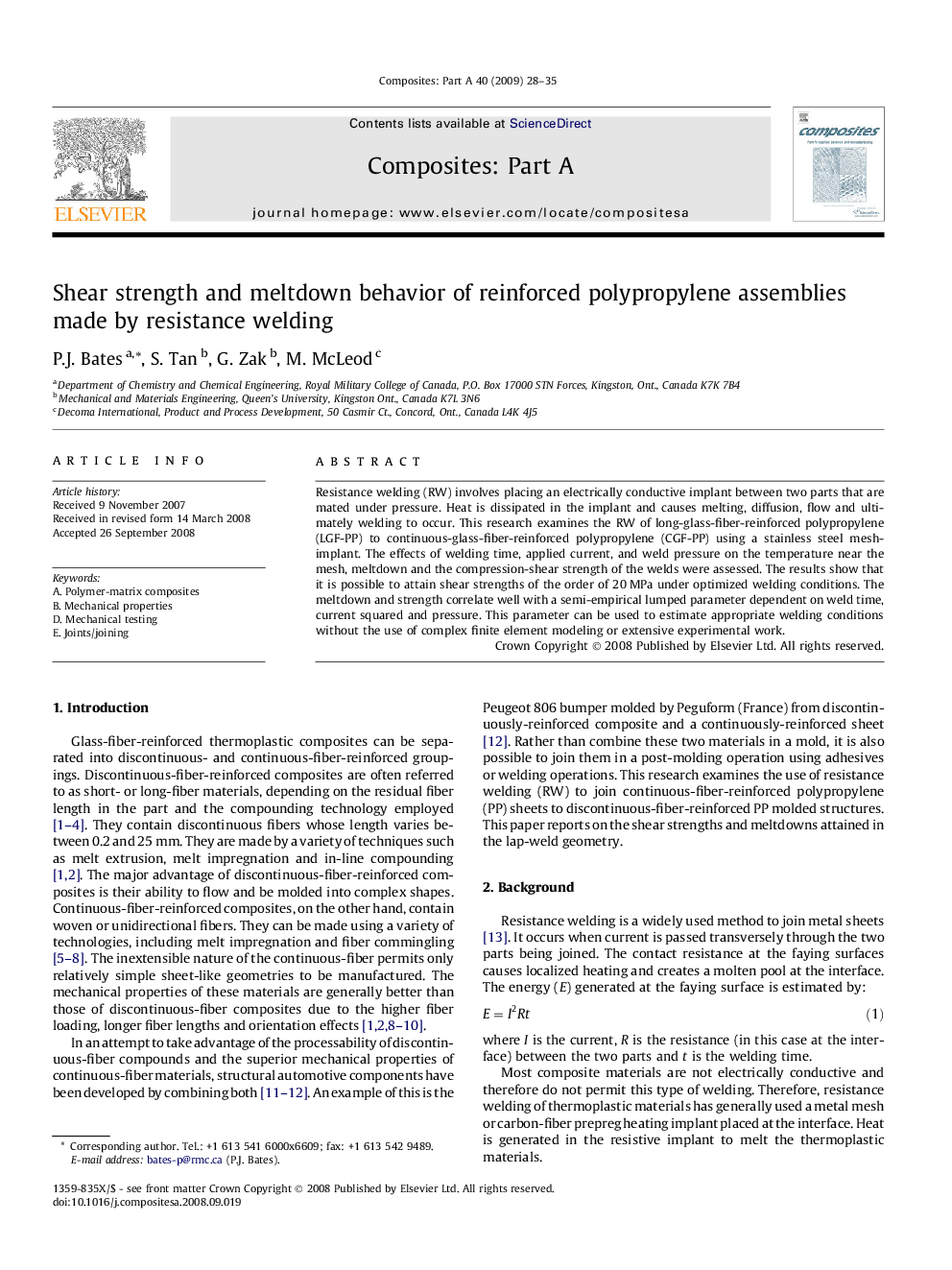| Article ID | Journal | Published Year | Pages | File Type |
|---|---|---|---|---|
| 1467526 | Composites Part A: Applied Science and Manufacturing | 2009 | 8 Pages |
Resistance welding (RW) involves placing an electrically conductive implant between two parts that are mated under pressure. Heat is dissipated in the implant and causes melting, diffusion, flow and ultimately welding to occur. This research examines the RW of long-glass-fiber-reinforced polypropylene (LGF-PP) to continuous-glass-fiber-reinforced polypropylene (CGF-PP) using a stainless steel mesh-implant. The effects of welding time, applied current, and weld pressure on the temperature near the mesh, meltdown and the compression-shear strength of the welds were assessed. The results show that it is possible to attain shear strengths of the order of 20 MPa under optimized welding conditions. The meltdown and strength correlate well with a semi-empirical lumped parameter dependent on weld time, current squared and pressure. This parameter can be used to estimate appropriate welding conditions without the use of complex finite element modeling or extensive experimental work.
